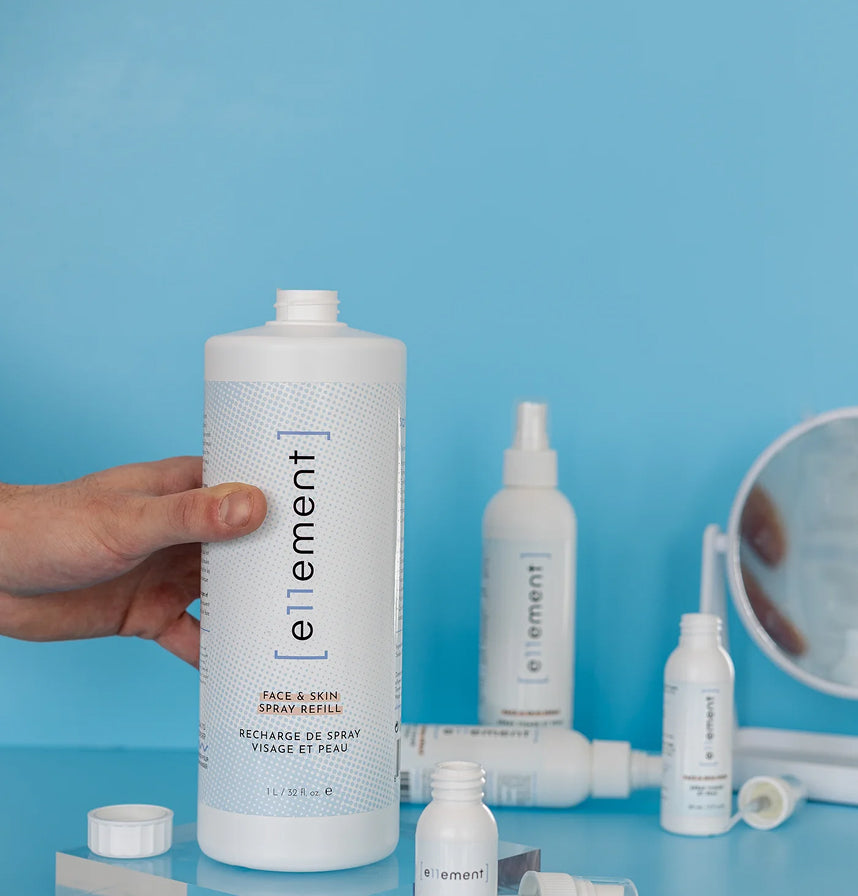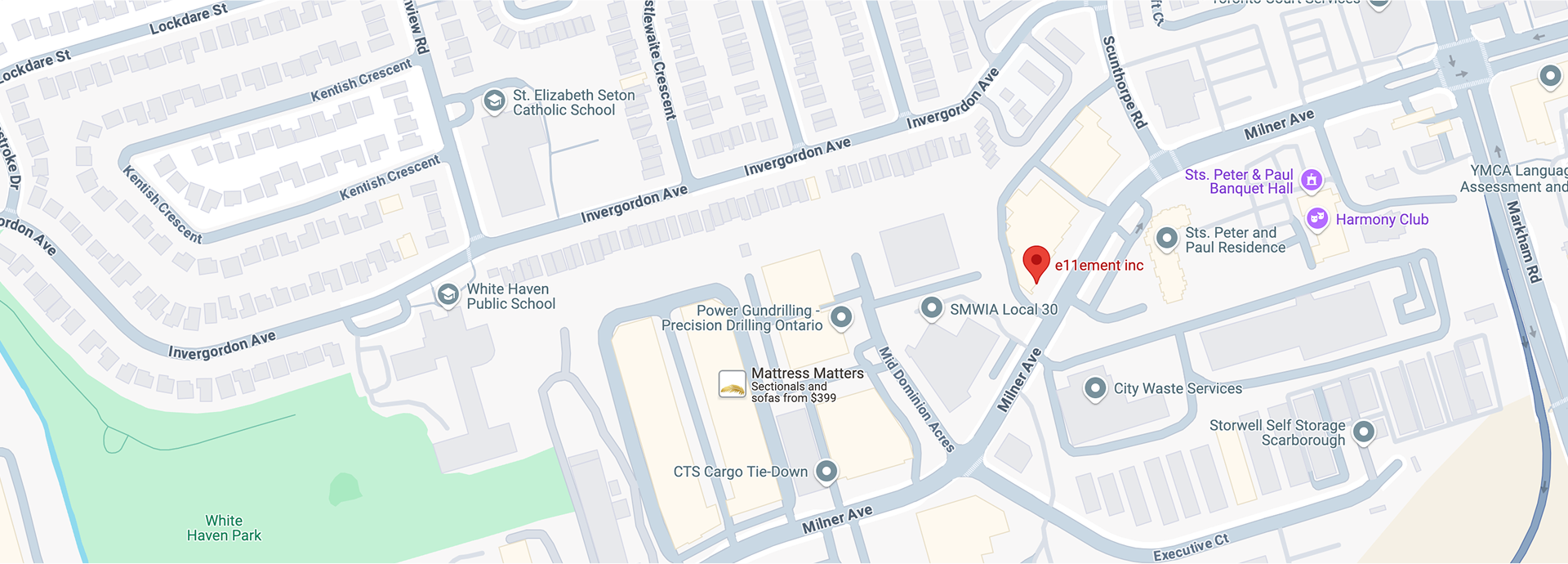Winter weather brings a range of skin challenges, from dryness to irritation, due to the cold, dry air and sharp winds that strip moisture from our skin. In these conditions, it’s essential to find skincare solutions that go beyond basic moisturizers to protect and fortify the skin barrier. Hypochlorous acid spray is emerging as a promising option for this purpose. This naturally occurring, gentle acid can offer substantial benefits, making it a valuable tool in your winter skincare arsenal. Let’s explore how hypochlorous acid works and why it can be particularly beneficial during the colder months.

Hypochlorous Acid: What It Is and How It Works?
Hypochlorous acid (HOCl) is a naturally occurring compound in our bodies, produced by white blood cells to fight infections and promote healing. In skincare, hypochlorous acid has been recognized for its antimicrobial, anti-inflammatory, and skin-soothing properties. It is safe, gentle, and non-toxic, making it suitable for all skin types, including sensitive skin.
In recent years, hypochlorous acid spray has gained popularity in skincare routines, particularly for its ability to combat bacteria without harming the skin’s natural balance. It’s an effective addition to skincare because it not only addresses acne and irritation but also strengthens the skin’s protective barrier. This is particularly useful in cold weather when the skin is more vulnerable to environmental stressors.
How Hypochlorous Acid Spray Protects Skin in Cold Weather
1. Hydrates Without Overwhelming the Skin
Cold weather can drastically reduce moisture levels in the skin. Hypochlorous acid spray works by balancing hydration without adding excessive oils or heavy creams. When used as a fine mist, it provides a light layer of moisture that absorbs quickly. This is ideal for layering with other hydrating products like hyaluronic acid or lightweight serums, allowing you to build a customized hydration routine based on your skin's needs.
2. Supports the Skin Barrier
The skin barrier is our natural shield against environmental factors, and maintaining its integrity is crucial for skin health, especially in cold weather. Hypochlorous acid helps by reinforcing the skin’s defenses against pollutants, bacteria, and irritants. The skin barrier can become compromised in winter due to temperature changes and low humidity. Hypochlorous acid spray strengthens this barrier, ensuring it functions properly to retain moisture and prevent irritation.
3. Reduces Redness and Inflammation
Hypochlorous acid is known for its anti-inflammatory properties. Cold weather can lead to increased sensitivity, causing redness and irritation. Using a hypochlorous acid spray can help calm the skin by reducing inflammation. The anti-inflammatory properties of hypochlorous acid make it ideal for conditions like rosacea, eczema, and other inflammatory skin issues that tend to worsen in winter.
4. Fights Harmful Bacteria
One of the most notable qualities of hypochlorous acid is its antibacterial and antimicrobial effects. While these properties make it beneficial for treating acne, they also provide an extra layer of defense against harmful microorganisms. In winter, when the skin is more susceptible to infections due to dryness and small cracks in the barrier, hypochlorous acid spray can offer a proactive approach to protecting the skin.
5. Accelerates Healing
Winter weather can lead to small cracks, dry patches, or even minor abrasions on the skin. Hypochlorous acid’s role in promoting wound healing makes it a valuable addition to a winter skincare routine. Its ability to support cellular repair processes helps the skin recover faster from these small injuries. Regular application of hypochlorous acid spray can support smoother, healthier-looking skin during winter’s harsher conditions.
Incorporating Hypochlorous Acid Spray into a Winter Skincare Routine
To maximize the benefits of hypochlorous acid spray in cold weather, it's helpful to integrate it effectively with other skincare products. Here’s a simple winter routine to follow:
Step 1: Cleanse Gently
Start with a gentle cleanser that doesn’t strip away natural oils. Opt for creamy or hydrating cleansers that preserve the skin’s moisture levels, setting the stage for optimal absorption of other products.
Step 2: Apply Hypochlorous Acid Spray
After cleansing, mist your face with hypochlorous acid spray. This step adds a light layer of protection and hydration, soothing the skin and preparing it to receive other products. The spray can also be reapplied throughout the day to refresh and maintain hydration without disturbing makeup.
Step 3: Use a Hydrating Serum
Follow up with a hydrating serum, ideally one that contains hyaluronic acid or other humectants. The hypochlorous acid spray works well in combination with such serums, enhancing moisture retention.
Step 4: Moisturize with a Barrier Cream
Choose a moisturizer that supports the skin barrier. Look for products with ceramides, squalane, or other nourishing ingredients. This will seal in the moisture from the previous steps and create a protective layer against the cold.
Step 5: Don’t Forget Sunscreen
Even in winter, UV protection is essential. Cold weather doesn’t eliminate the need for SPF, as UV rays can penetrate clouds and contribute to skin damage. A broad-spectrum sunscreen will add another layer of protection, complementing the benefits of hypochlorous acid spray.
Benefits of Hypochlorous Acid Spray for Different Skin Types in Winter
Hypochlorous acid spray is versatile and suitable for a range of skin types, making it an excellent addition to many skincare routines.
Sensitive Skin
Hypochlorous acid is extremely gentle, making it perfect for sensitive skin, which often reacts to common winter skincare ingredients. Its anti-inflammatory properties make it soothing for those with sensitivity and redness, helping to calm and protect delicate skin.
Dry Skin
Winter can be particularly harsh on dry skin. Hypochlorous acid spray provides an initial layer of hydration and prevents moisture loss, which can help dry skin feel more comfortable. It works well when combined with richer moisturizers that lock in hydration.
Oily and Acne-Prone Skin
People with oily or acne-prone skin often worry about heavier products clogging pores. Hypochlorous acid spray provides hydration without adding oils, and its antibacterial properties help control acne-causing bacteria. It’s an ideal alternative for people seeking a lighter winter skincare option.
Aging Skin
For mature skin, hypochlorous acid spray can assist in reducing inflammation and promoting healing. Cold weather can exaggerate fine lines and wrinkles due to dehydration, so using a product that protects and hydrates without being too heavy can be beneficial for aging skin.
Choosing the Right Hypochlorous Acid Spray
When selecting a hypochlorous acid spray for winter skincare, it's important to choose a high-quality product. Look for sprays that are free from unnecessary additives or alcohol, as these can dry out the skin. Many hypochlorous acid sprays are packaged in convenient mist bottles, making them easy to apply throughout the day without hassle.
Ensure the product has a balanced pH and is intended for facial use. Some hypochlorous acid sprays are designed for disinfecting surfaces or other purposes and may not be suitable for skin application.
Conclusion
Hypochlorous acid spray offers multiple benefits that make it particularly suitable for winter skincare. From hydrating and strengthening the skin barrier to calming inflammation and fighting bacteria, it addresses many of the issues that arise in cold weather. Its gentle nature makes it versatile for all skin types, and it’s easy to incorporate into any skincare routine.
Adding hypochlorous acid spray to your winter regimen can help you maintain healthier, more resilient skin, even in harsh conditions. If you’re seeking a simple, effective way to protect and soothe your skin this winter, consider giving hypochlorous acid spray a try.























